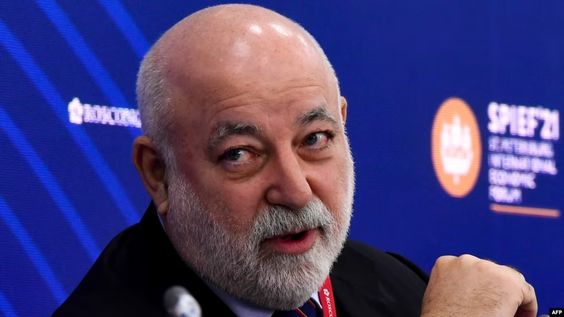Africa
Russian oligarch-linked firm made a sizable donation to the ANC in South Africa

The huge payment from a mining firm connected to a Russian tycoon subject to U.S. sanctions that the ruling ANC party of South Africa accepted has drawn criticism, but the party has dismissed it.
Investor Viktor Vekselberg has stock in United Manganese of Kalahari Ltd, which gave the ANC’s election conference $826,000 last year. Opponents assert that the donation calls into question the party’s claim to have a “neutral stance” on the conflict in Ukraine and its failure to condemn Russia’s invasion.
The payment, which has a local value of 15 million rand, was recently made public when South Africa’s electoral commission issued a statement outlining donations made to political parties during the third quarter of the fiscal year 2022–2023.
When asked by VOA if a donation from a business associated with a close ally of Russian President Vladimir Putin had any impact on the ruling party’s position on the conflict in Ukraine, spokeswoman Mahlengi Bhengu-Motsiri declined to comment.
In a text message, she stated, “The ANC receives financial support from numerous parties from all over the world, both voluntarily and involuntarily. “Some are accepted, while others are turned away if they don’t adhere to the principles and policies of the ANC. We will evaluate this current support in the same manner.
“The ANC’s position on the situation in Russia and Ukraine won’t change. Conflict and war, in our opinion, cannot lead to anything progressive. We continue to urge a meeting of all stakeholders to discuss a solution amicably.
The Democratic Alliance’s chief national spokesperson, Solly Malatsi, denounced the donation.
The ANC government receives millions of rands in donations from Russian oligarchs, thus this explains how it views the war between Russia and Ukraine, according to Malatsi. “That goes against South Africa’s pursuit of and adherence to human rights as the guiding principle of our foreign policy,” the author says.
The funds were used to help the ANC elect President Cyril Ramaphosa to a second term in December. The massively indebted party struggled to cover its expenses, which caused issues with the event’s funding.
The company that mines the metal necessary for the creation of iron ore is called United Manganese of Kalahari, Ltd. (UMK), and it is based in South Africa.
Investigative stories in South African media claim that the ANC’s financial front Chancellor House is one of the shareholders, and that a Vekselberg-connected company holds another share worth less than 50%, effectively allowing UMK to evade U.S. sanctions.
The Russian tycoon, who is apparently close to the Kremlin, was already listed on American sanctions lists prior to last year’s invasion of Ukraine. After the conflict began, the FBI inspected his American homes and the U.S. government confiscated his luxury yacht.
With a long history of close connections to Russia, South Africa refrained from speaking out at the U.N. against Moscow’s invasion of Ukraine.
According to Steven Gruzd of the South African Institute of International Relations, a Russia expert, the donation raises concerns about Pretoria’s political stance on the conflict between Russia and Ukraine.
Viktor Vekselberg has already been associated with the ANC; this is not the first time his name has been mentioned, and this is a large payment to an extremely cash-strapped political organisation, according to Gruzd.
They are attempting to make it appear as though this is just another routine donation to a political party, one of many others, and that they will check it to ensure that it is consistent with their principles.
Notwithstanding the worries of the United States and the European Union, South Africa last month hosted the Chinese and Russian navies for joint military manoeuvres off its east coast.
Putin is scheduled to travel to South Africa in August for the BRICS meeting; the BRICS nations are South Africa, Brazil, Russia, India, and China.
